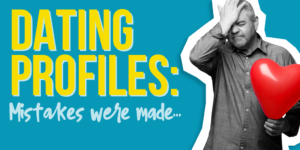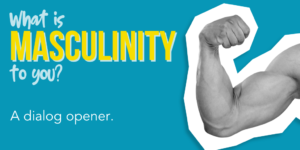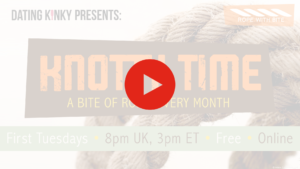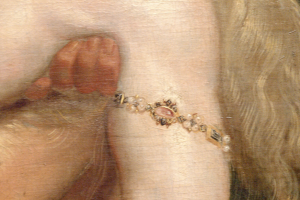This writing is now available as a podcast episode!
This is a new series on red flags to watch out for when meeting and dating and connecting with others in kink and elsewhere.
What is a red flag?
Red Flags are called this because a red flag is a well-known warning of danger or a problem ahead, like difficult seas or perilous conditions in the road ahead. The idiom has been in use since the 1800s.
The red flag is not the danger itself.
It’s important to understand that.
An overreaction to a “No” is rarely itself going to be dangerous. At least not the first time. It’s just a warning that things may become perilous moving forward. Emotionally, physically.
And they may not.
In real life, a flag may be posted to advise you to beware, when the danger has gone. Same with red flags in dating. The danger may never appear.
But it’s always worth noting and looking for other red flags. Because if they pile up, you’ll know that there is a lot to potentially watch out for in this person.
So, how do they respond to your first “No?”
Or when you simply say, “No, thank you”?
Or when you’re not available for a specific date and time of their choosing?
Or when you disagree with their stated opinion?
Do they accept it graciously? Do they get upset and whine or grow belligerent?
Pay close attention.
It’s easy to miss, after all, if you’re used to people overacting when it comes to your right to make your own choices and decisions and have your own opinions.
In the heat of first attraction, many find it easy to ignore and forgive those first transgressions.
“Well, I’d be disappointed, too.”
“They DID say that this is important to them.”
Or, “I suppose I owed them a reason.”
Don’t ignore your gut feelings. And if you feel the need to excuse or forgive their behavior, how much did they overreact, anyway?
People who feel entitled to your time and effort and who believe that their wants and needs are more important than yours will show you this. More, they will exert their will to attempt to train you to comply through bullying, emotional manipulation, and possibly, eventually, physical abuse.
Those who accept your “nos,” your disagreements, and understand that you are not always going to be at their whim’s beck and call show you that they value and respect you as an autonomous human being, who has the ability and the right to choose for yourself.










One Response